COVID-19 waves and vitamin D
- an overlooked connection
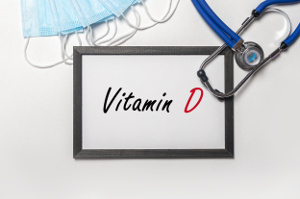 When it comes to battling COVID-19, the main focus is on hygiene, face masks, lockdown, and delayed vaccines. For several months, scientists have urged people to take vitamin D supplements during the winter period as a way of preventing new waves of COVID-19. This is because vitamin D is of vital importance for a well-functioning immune system and it is known that deficiencies of this nutrient contribute to the spread of seasonal virus infections. We also see that groups of people that are most likely to be vitamin D-deficient – including seniors, nursing home residents, people with dark skin, overweight individuals, diabetics, and those with chronic diseases – are most vulnerable towards COVID-19. The British government is already handing out vitamin D supplements to exposed groups, according to an article in Daily Mail and a review article that is published in British Medical Journal. But why is vitamin D so important for the immune defense, why are some people more likely to become deficient, and how much vitamin D do we actually need? Also, will vaccines cut the mustard if COVID-19 mutates?
When it comes to battling COVID-19, the main focus is on hygiene, face masks, lockdown, and delayed vaccines. For several months, scientists have urged people to take vitamin D supplements during the winter period as a way of preventing new waves of COVID-19. This is because vitamin D is of vital importance for a well-functioning immune system and it is known that deficiencies of this nutrient contribute to the spread of seasonal virus infections. We also see that groups of people that are most likely to be vitamin D-deficient – including seniors, nursing home residents, people with dark skin, overweight individuals, diabetics, and those with chronic diseases – are most vulnerable towards COVID-19. The British government is already handing out vitamin D supplements to exposed groups, according to an article in Daily Mail and a review article that is published in British Medical Journal. But why is vitamin D so important for the immune defense, why are some people more likely to become deficient, and how much vitamin D do we actually need? Also, will vaccines cut the mustard if COVID-19 mutates?
Read more about COVID-19 waves and vitamin D – an overlooked connection.
- Created on .








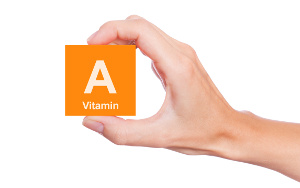
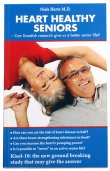

 Migraine is a chronic neurological disorder that can ruin your quality of life and cost you many sick days. Migraine medicine does not necessarily work for all patients and many people get side effects. Therefore, prevention is a better strategy. According to a new study published in Nutrition Journal, zinc supplements have the potential to significantly reduce the frequency of migraine headaches. You can also read about two other nutrients that reduce the frequency and severity of migraine attacks and what it is that triggers them. The most important thing is to find and address the different causes. Diet and lifestyle have a profound impact.
Migraine is a chronic neurological disorder that can ruin your quality of life and cost you many sick days. Migraine medicine does not necessarily work for all patients and many people get side effects. Therefore, prevention is a better strategy. According to a new study published in Nutrition Journal, zinc supplements have the potential to significantly reduce the frequency of migraine headaches. You can also read about two other nutrients that reduce the frequency and severity of migraine attacks and what it is that triggers them. The most important thing is to find and address the different causes. Diet and lifestyle have a profound impact.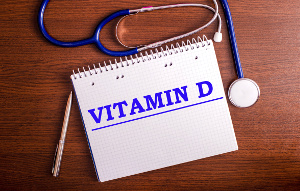 Vitamin D plays an overlooked role in the immune defense. Being deficient of the nutrient increases your risk of bacterial pneumonia by up to 60 percent, according to a large Danish study of 116,000 participants that was carried out by scientists from Herlev Hospital, Gentofte Hospital, and the University of Copenhagen.
Vitamin D plays an overlooked role in the immune defense. Being deficient of the nutrient increases your risk of bacterial pneumonia by up to 60 percent, according to a large Danish study of 116,000 participants that was carried out by scientists from Herlev Hospital, Gentofte Hospital, and the University of Copenhagen. Pancreatic cancer remains one of the deadliest cancers even with improved therapies. Because many people are diagnosed too late and the prognoses are generally poor it is essential to focus a lot more on prevention for instance by striving to maintain normal weight and avoiding smoking. According to a new meta-analysis published in Nutrition Journal, it appears that large quantities of vitamin B6 from diet or supplements have the potential to lower the risk of pancreatic cancer. Earlier studies have also shown that vitamin B6 lowers the risk of bowel cancer.
Pancreatic cancer remains one of the deadliest cancers even with improved therapies. Because many people are diagnosed too late and the prognoses are generally poor it is essential to focus a lot more on prevention for instance by striving to maintain normal weight and avoiding smoking. According to a new meta-analysis published in Nutrition Journal, it appears that large quantities of vitamin B6 from diet or supplements have the potential to lower the risk of pancreatic cancer. Earlier studies have also shown that vitamin B6 lowers the risk of bowel cancer. The rate of eating disturbances among children, teenagers, and adults has increased in the past year. Health authorities typically focus on cultural and psychosocial causes and therapies, but the treatments often drag out and are inadequate. What is equally important is to look at whether the patients lack essential nutrients that are important for the brain, the nervous system, the appetite, and the sense of smell and taste. Clinical research from the past decades has shown that anorexia and bulimia in particular can often be treated with zinc and various other nutrients, while chromium is important for maintaining stable blood sugar. The use of the right supplements combined with different therapy forms may therefore be the right way to obtain permanent results.
The rate of eating disturbances among children, teenagers, and adults has increased in the past year. Health authorities typically focus on cultural and psychosocial causes and therapies, but the treatments often drag out and are inadequate. What is equally important is to look at whether the patients lack essential nutrients that are important for the brain, the nervous system, the appetite, and the sense of smell and taste. Clinical research from the past decades has shown that anorexia and bulimia in particular can often be treated with zinc and various other nutrients, while chromium is important for maintaining stable blood sugar. The use of the right supplements combined with different therapy forms may therefore be the right way to obtain permanent results.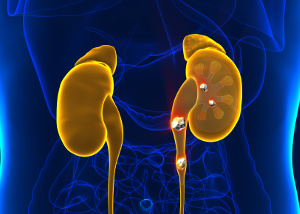 Kidney stones can be extremely painful, and there is a rather large risk that they reoccur at a later time. What you eat means a lot and your diet is therefore an important key to prevention. It is important to get plenty of magnesium and vitamin B6, whereas you should try to avoid oxalate-rich food sources like spinach, nuts, root vegetables, food with high soy content, rhubarb, berries, and dark chocolate. All of these items contain a lot of oxalate that may contribute to the formation of kidney stones. If you take magnesium in supplement form, make sure to choose a source that the body can absorb properly. Also, drink plenty of water, according to an article in the Norwegian health magazine Vitenskap og Fornuft.
Kidney stones can be extremely painful, and there is a rather large risk that they reoccur at a later time. What you eat means a lot and your diet is therefore an important key to prevention. It is important to get plenty of magnesium and vitamin B6, whereas you should try to avoid oxalate-rich food sources like spinach, nuts, root vegetables, food with high soy content, rhubarb, berries, and dark chocolate. All of these items contain a lot of oxalate that may contribute to the formation of kidney stones. If you take magnesium in supplement form, make sure to choose a source that the body can absorb properly. Also, drink plenty of water, according to an article in the Norwegian health magazine Vitenskap og Fornuft. Older people with a high intake of vitamin C appear to have healthier skeletal muscle than those with lower intakes, according to a new study from the University of East Anglia in England. This is an important discovery because our natural loss of muscle mass begins in our forties and starts to accelerate after we pass the age of 65 years. The phenomenon is known as sarcopenia and is one of the main reasons why older people become increasingly fragile and susceptible to disease. The authors behind the study believe that it is particularly important for middle-aged and older people to get plenty of vitamin C from their diets or by taking supplements. As a bonus effect, vitamin C also protects against infections and cardiovascular diseases, which also typically affect seniors.
Older people with a high intake of vitamin C appear to have healthier skeletal muscle than those with lower intakes, according to a new study from the University of East Anglia in England. This is an important discovery because our natural loss of muscle mass begins in our forties and starts to accelerate after we pass the age of 65 years. The phenomenon is known as sarcopenia and is one of the main reasons why older people become increasingly fragile and susceptible to disease. The authors behind the study believe that it is particularly important for middle-aged and older people to get plenty of vitamin C from their diets or by taking supplements. As a bonus effect, vitamin C also protects against infections and cardiovascular diseases, which also typically affect seniors. Chronic low-grade inflammation has a negative effect on our health. It pummels the body with free radical damage to healthy cells and tissue. Chronic low-grade inflammation is linked to ageing, overweight, type 2 diabetes, cardiovascular disease, and other health problems. In the case of infections, there is also a risk that the immune defense overreacts with hyperinflammation, which can turn out to be very problematic. Now, science has discovered that our gut flora also affects the immune system. Some gut bacteria have a pro-inflammatory effect, while others help fight inflammation. Fish oil’s anti-inflammatory effect involves other mechanisms. Supplements of beneficial gut bacteria, better known as probiotics, and fish oil supplements help increase gut flora diversity. This is good for fighting inflammation, according to a new study published in Nutrients. Another thing to make sure of is to get enough vitamin D.
Chronic low-grade inflammation has a negative effect on our health. It pummels the body with free radical damage to healthy cells and tissue. Chronic low-grade inflammation is linked to ageing, overweight, type 2 diabetes, cardiovascular disease, and other health problems. In the case of infections, there is also a risk that the immune defense overreacts with hyperinflammation, which can turn out to be very problematic. Now, science has discovered that our gut flora also affects the immune system. Some gut bacteria have a pro-inflammatory effect, while others help fight inflammation. Fish oil’s anti-inflammatory effect involves other mechanisms. Supplements of beneficial gut bacteria, better known as probiotics, and fish oil supplements help increase gut flora diversity. This is good for fighting inflammation, according to a new study published in Nutrients. Another thing to make sure of is to get enough vitamin D.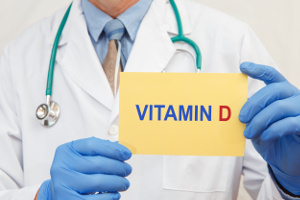 A large Israeli population study of over 4.6 million people shows that lack of sunshine and vitamin D increases the risk of COVID-19 infections and new infection waves in the winter period. The study shows why seniors, those with chronic disease, overweight individuals, and certain ethnic groups such as orthodox male Jews and female Muslims are more vulnerable. The scientists recommend vitamin D supplementation throughout the winter period or even all year round for those who do not get enough sun exposure during the summer. You can also read about why face masks block the body’s vitamin D synthesis, why COVID-19 originates from bats, and other mysteries related to the spread of the infection.
A large Israeli population study of over 4.6 million people shows that lack of sunshine and vitamin D increases the risk of COVID-19 infections and new infection waves in the winter period. The study shows why seniors, those with chronic disease, overweight individuals, and certain ethnic groups such as orthodox male Jews and female Muslims are more vulnerable. The scientists recommend vitamin D supplementation throughout the winter period or even all year round for those who do not get enough sun exposure during the summer. You can also read about why face masks block the body’s vitamin D synthesis, why COVID-19 originates from bats, and other mysteries related to the spread of the infection. "After about one week of taking the Q10 supplement I could feel a huge difference," says 23-year old Alan Piccini, who has been suffering from extreme fatigue and muscle aches ever since he was a child.
"After about one week of taking the Q10 supplement I could feel a huge difference," says 23-year old Alan Piccini, who has been suffering from extreme fatigue and muscle aches ever since he was a child. “Taking capsules with co-enzyme Q10 has freed me of the severe side effects of my cholesterol lowering medicine,” Mrs Franken explains.
“Taking capsules with co-enzyme Q10 has freed me of the severe side effects of my cholesterol lowering medicine,” Mrs Franken explains.